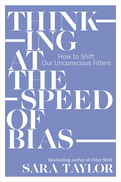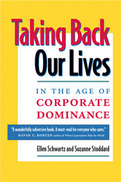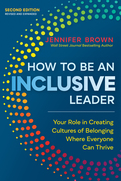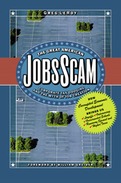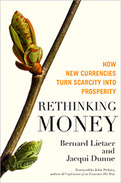Learn to recognize your unconscious bias and create positive change.
Respected DEI expert Sara Taylor presents a down-to-earth guide on how to tackle unconscious biases and foster true equity in our rapidly changing world. Through relatable examples and practical strategies, readers learn to deliberately slow down their thought processes and become aware of their filters in various situations. Taylor encourages readers to question their own assumptions by asking, "Do I know that what I'm thinking is actually true?" and "Why might I be reacting this way?"
The book demonstrates the importance of a clear set of competencies, skills, and strategies for addressing unconscious bias. By developing a culturally competent mindset and using a shared, holistic language to discuss these issues, readers gain the tools to understand, discuss, and implement change both at home and in the workplace. This approach avoids blame or shame, making it accessible and empowering for everyone.
The book's insights extend beyond individuals; it demonstrates how organizations can scale up cultural competence to transform their structures and systems. With a strong sense of hope, readers are empowered to make a difference, creating a more just and equitable world for all.
The authors use hard-hitting examples and illuminating personal vignettes about confronting fear, anger, death, family problems, and the stultifying effects of staying in the "comfort zone." They detail over 75 steps for personal and societal actions-some quick and immediate, others in-depth and long term-for retaking control of our lives. The authors include provocative questions for reflection that shock, prod, and jump-start the reader into thinking about what matters most to them.
Deeply moving, outrageous, encouraging, compelling, and inspiring, Taking Back Our Lives in the Age of Corporate Dominance blends unrelenting candor with the comfort of real-life stories of hope-and ultimately shows us that choice is the most important tool we have for reviving our lives and our world.
- Reveals the profound impact of the global corporate economy on our daily lives
- Details 75 immediate and long-term Action Steps for empowering ourselves both individually and as a society
- Offers specific tips, ideas, and resources on how to pare down our lives and open up our time
- Provides questions for reflection that help readers to think in new ways about what matters most to them
The need for inclusive leadership has never been more urgent. In the United States, the wealth gap is the greatest it has ever been, with women, people of color, and other marginalized communities being the most impacted by economic and societal inequities. In the workplace, representation is still sorely lacking across every industry. Pay disparities, low wages, and lack of benefits continue to characterize many jobs in the nation's labor force. These realities have an impact on generations, communities, and our society overall. To build a more equitable future, leaders must grasp the urgency of their role and responsibility in the change effort.
In this updated and greatly expanded second edition of her bestselling book, Jennifer Brown takes a deeper dive into what it takes to be an inclusive leader and examines the challenges and mindsets that continue to hold many leaders back. Combining nearly two decades of professional DEI expertise with personal experience and reflection, she tackles complex topics such as identity, privilege, and systemic inequities. Following her widely acclaimed Inclusive Leader Continuum, Brown makes the journey to becoming an inclusive leader more informed and actionable by offering new structure and content throughout the new edition of the book, including new insights and stories, detailed strategies and tools, and discussion guides to spark learning at the individual and organizational levels.
Whether you are already a fan of the first edition of How to Be an Inclusive Leader or are just embarking on your journey to become a more inclusive leader, this book will meet you where you are and equip you to take action and step into your role in the change effort.
2007
Jack Foster's simple five-step technique for solving problems and getting ideas takes the mystery and anxiety out of the idea-generating process. It's a proven process that works. You'll learn to condition your mind to become "idea-prone," utilize your sense of humor, develop your curiosity, visualize your goals, rethink your thinking, and overcome your fear of rejection.
This expanded edition of the inspiring and enlightening classic features new information on how to turn failures to your advantage and how to create a rich, idea-inducing environment. Dozens of new examples and real life stories show that anyone can learn to get more and better ideas.
- A revised and expanded edition of a bestselling classic--more than 90,000 copies sold of the first edition
- This new edition includes to completely new chapters
- Cleverly weaves together exercises, stories, quotations, and illustrations to offer a fun and practical guide to idea generation
2013
Rethinking Money demonstrates that new currencies can not only resolve money's inadequacies but also energize new behaviors that can deliver the healthier world we fervently desire.
- Describes an innovative way ordinary people are creating solutions to address a wide variety of problems globally
- Reveals both the devastation caused by our current money system and ways new currencies are being designed to repair that damage
- Coauthored by one of the world's leading experts in money systems and an award-winning journalist
- Click here for the press release; contact [email protected] for media review copies
There is a way-in fact, thousands of ways-to stop the seemingly inevitable slide toward global self-destruction. Solutions are already in place throughout the world where terrible problems once existed. The changes came about not through the redistribution of wealth, increased taxation, enlightened corporate self-interest, or government handouts but by people simply rethinking the concept of money and acting from this new perspective. With that restructuring, everything changes.
Bernard Lietaer and Jacqui Dunne explain the origins of our current monetary system-built on bank debt and based on scarcity-and how its inherent limitations drive our ongoing social, economic, and ecological debacles. They then take readers on a fascinating expedition that chronicles stories of ordinary people and their communities solving critical issues that affect us all by using new money systems in tandem with conventional money. These accounts are just the tip of the iceberg-over 4,000 cooperative currencies are now in circulation.
Rethinking Money demonstrates that new currencies can not only resolve money's inadequacies but also energize new behaviors that can deliver the healthier world we fervently desire. For instance, currencies have been designed to strengthen local economies, create work, beautify a city, and provide health care.
The book provides remedies for challenges faced by governments, businesses, nonprofits, local communities, and even banks. It speaks clearly about a complex subject and promises to strike a deep chord with readers eager to find meaningful solutions to the problems that threaten our security, our prosperity, and our future.
- Describes an innovative way ordinary people are creating solutions to address a wide variety of problems globally
- Reveals both the devastation caused by our current money system and ways new currencies are being designed to repair that damage
- Coauthored by one of the worlds leading experts in money systems and an award-winning journalist
- Click here for the press release; contact [email protected] for media review copies
There is a wayin fact, thousands of waysto stop the seemingly inevitable slide toward global self-destruction. Solutions are already in place throughout the world where terrible problems once existed. The changes came about not through the redistribution of wealth, increased taxation, enlightened corporate self-interest, or government handouts but by people simply rethinking the concept of money and acting from this new perspective. With that restructuring, everything changes.
Bernard Lietaer and Jacqui Dunne explain the origins of our current monetary systembuilt on bank debt and based on scarcityand how its inherent limitations drive our ongoing social, economic, and ecological debacles. They then take readers on a fascinating expedition that chronicles stories of ordinary people and their communities solving critical issues that affect us all by using new money systems in tandem with conventional money. These accounts are just the tip of the icebergover 4,000 cooperative currencies are now in circulation.
Rethinking Money demonstrates that new currencies can not only resolve moneys inadequacies but also energize new behaviors that can deliver the healthier world we fervently desire. For instance, currencies have been designed to strengthen local economies, create work, beautify a city, and provide health care.
The book provides remedies for challenges faced by governments, businesses, nonprofits, local communities, and even banks. It speaks clearly about a complex subject and promises to strike a deep chord with readers eager to find meaningful solutions to the problems that threaten our security, our prosperity, and our future.


